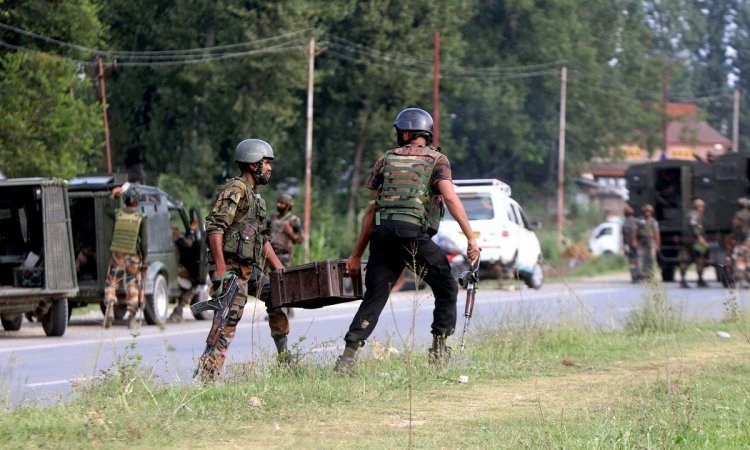Jammu and Kashmir: Warning on Militancy from Anantnag
Asia News Agency

The killing of a Colonel, a Major and a Deputy Superintendent of Police by terrorists in Anantnag, Kashmir, is a wake-up call that militancy, though dormant, is still kicking and alive. It is also a reminder, writes The Indian Express, that “peace and normalcy are still fragile…”
In a sense, the killings “run against the grain of the bigger picture over the last few years in J&K, now a Union Territory. According to Home Ministry data, there was a 32 per cent reduction in acts of terror between 2019 and 2022 over 2016-2019. Deaths of civilians were down by 14 per cent and of security personnel by 52 per cent. Data from 2020 up to June this year shows a steady decline in the local recruitment of terrorists….The successes of the security forces in recent years notwithstanding, it is clear that maintaining peace and order will require continuing alertness, a robust intelligence network and a strategic calculus that allows for nimble tactics.”
The uneasy state of India’s relations with Pakistan points to the complexity of the challenge that lies ahead.
Attack threatens prospects for peace / elections
The terrorist attack, writes The Hindustan Times “blots the government’s narrative that terrorism is under check in the Union Territory (UT) and casts a shadow over its plans to restore grassroots democracy. Official data suggests a decline in terrorist attacks – 30 incidents till July 31 this year compared to 125 in 2022. The apparent calm has revived tourism with J&K reporting record footfalls. Meanwhile, the government has scheduled local bodies polls in October….”
The Anantnag attack, notes The Tribune “comes days after the Central Government told the Supreme Court that it was ready to conduct elections in J&K. An occasional setback should not deter the Centre from going ahead with the much-delayed electoral process.”
False notions
In this context, the remarks of National Conference chief Farooq Abdullah that terrorism ‘will continue until India talks to Pakistan’, have evoked some false notions, according to M N Sabharwal (former Director General of J&K Police) and Manish Sabharwal (J&K-born entrepreneur. These notions as “India has invited terrorism, Pakistan has legitimate interests in J&K, and there is somebody in Pakistan whom India can talk with.”
Pakistan has no legitimate claims on Kashmir “but the Valley became the vessel for Pakistan’s anger at itself after the idea of Pakistan died at birth when most Muslims stayed back in India. And, it was buried with the creation of Bangladesh….”
Pakistan’s terror factory, write the two authors “won’t back down without new calculations. The LeT did not face any consequence for its attack on the J&K Assembly in 2001. This emboldened the outfit to conduct bigger attacks on the Indian Parliament and Mumbai…..”
But India “will not forget or forgive” the Anantnag murders. The world also “must blunt global terrorism by helping Pakistan’s people to force their defence forces to defend, not rule.”
















